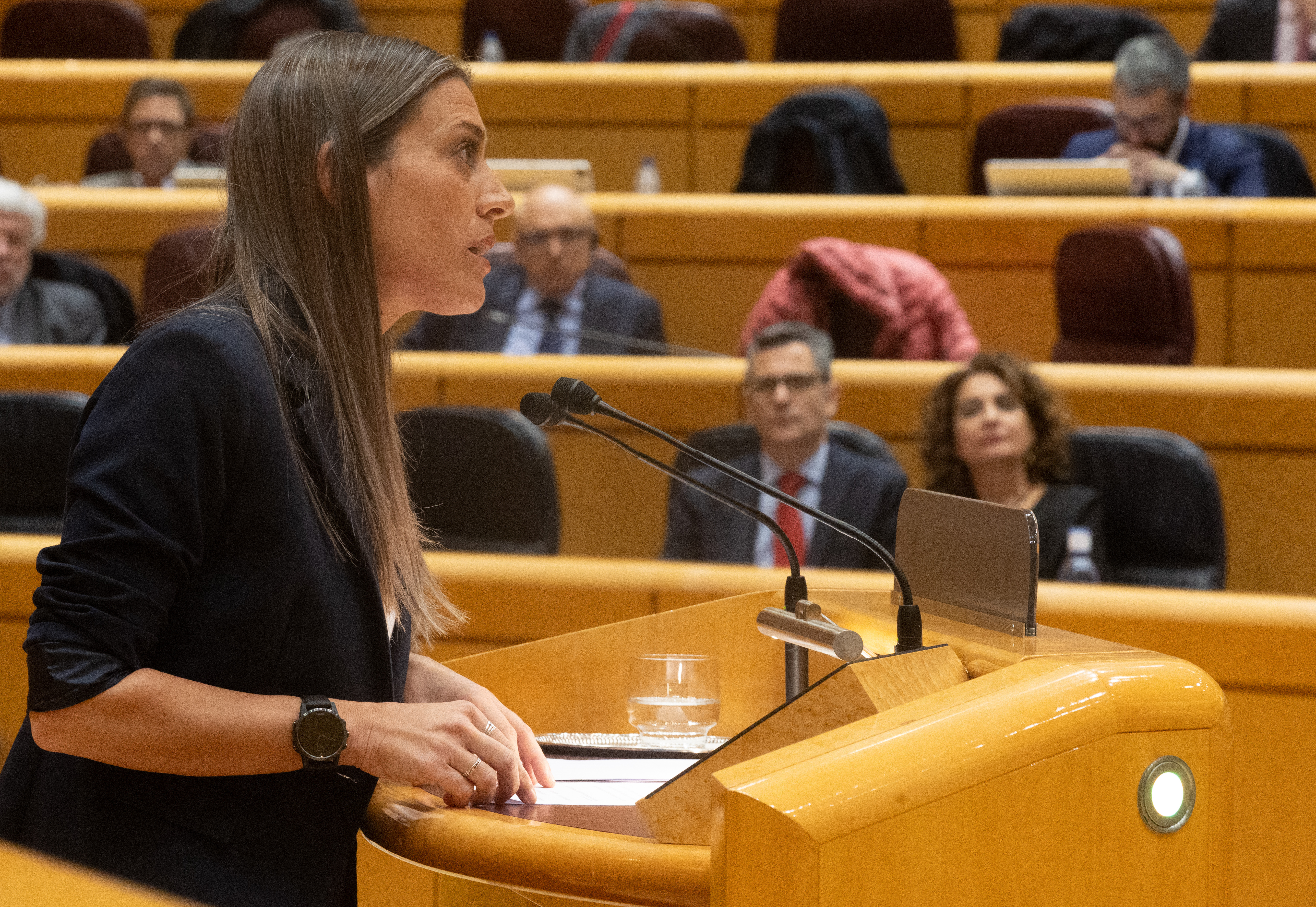A coming together of positions: Together for Catalonia (Junts), the Catalan Republican Left (ERC) and the Spanish Socialist Workers' Party (PSOE) have Tuesday presented two joint transactional amendments to improve the text of Spain's future amnesty law and enable its passage through the legislative process to continue. A transactional amendment is, essentially, a compromise - a proposed change drafted to attempt to combine the essence of other proposed texts and thus enable majority acceptance - and that is what has happened in Congress. One of the two changes to the text is aimed at touching up the major stumbling block that the bill has struck: the exception in the draft text excluding any supposed "terrorism offences" during the Catalan independence process from benefiting from the amnesty. The independentists have managed to dislodge the Socialists from their entrenched position and advance the text in some aspects, in order to give an extra layer of protection to the Democratic Tsunami and CDR cases - in which the defendants, 10 in the Tsunami case and 12 in the CDR affair - have been accused of terrorism crimes. Specifically, the parties ended up doing what had been on the table for days: including in the legislative text a specific passage defining what terrorism entails under this law. The intention is to avoid the manoeuvres of Spanish judges, such as Manuel García-Castellón, who seek to accuse independentists of terrorism, when they have clearly not committed this crime. The opinion was finally approved in Congress's justice committee by 20 votes in favour (PSOE, Sumar, Podemos, Junts, ERC, Bildu and PNV) to 17 against (PP and Vox).
Above, Drafts of the two transactional amendments to the Amnesty Bill agreed by Junts, ERC and the PSOE.
In the end, agreement was reached on the following addition to the section on those excluded from the amnesty due to terrorism, Point 2.d (Page 1 of the PDF above, in Spanish): "Whenever, manifestly and with direct intent, [the defendants] have caused serious violations of human rights, in particular, those provided for in Article 2 and 3 of the European Convention for the Protection of Human Rights and Fundamental Freedoms, and in international humanitarian law". Points 2 and 3 of this agreement refer to the right to life and to torture. It is, in fact, on that basis that García-Castellón seeks to take the instance of a Frenchman who died of a heart attack at Barcelona-El Prat airport on the day of the October 2019 protest and use it to exclude Carles Puigdemont and Marta Rovira from amnesty coverage. And thus, even with the extra protection of this more detailed definition, they could be left out of the amnesty. However, the new transactional amendment states that breaches of the agreement must occur "manifestly and with direct intent", which clearly did not happen with the French citizen who died near the airport. In addition, the need to wait until all appeals are heard before applying the amnesty in these cases has been removed, a change which was necessary to further protect the new law by being made ineffective if judges decided to make appeals of unconstitutionality.
Preliminary questions to the ECJ
As well, a second transactional amendment also ensures that what is to happen if preliminary questions on the new law are presented by Spanish judges to the European Court of Justice (ECJ) is also set out in the law's explanatory statements. The amendment notes that "the possible raising" of a question of unconstitutionality or a preliminary issue to the ECJ "does not affect the validity or effectiveness of the law". Until now, the amnesty law mentioned the Constitutional Court, but did not refer to the European court.
That is to say, it prevents Spanish judges from being able to put on the application of the rule on standby by knocking on the door of European justice. As well, Article 4 of the text is appended to include that "the suspension of criminal proceedings for any reason" will not prevent "the lifting of interim measures" agreed upon prior to the entry into force of the law and that "implied the curtailment of exercising fundamental rights and public freedoms" (Page 2-3 of the PDF above, in Spanish).
Pro-independence amendments remain live until the plenum
Despite the agreements this Tuesday, the pro-independence parties will keep alive the amendments that might still be approved when the plenary of Congress is held to consider the bill, predictably on January 30th. These are tweaks that go a step further than what has been achieved so far, with the hope of moving the PSOE forward a few more metres. Out of the pro-independence parties' proposals, two Junts amendments were not accepted: one to bring forward the start date for actions subject to the amnesty to November 1st, 2011 and another to include those affected by "deceptive and/or prospective police operations aimed at the criminalization of public officials and/or their environment, as long as they have not effectively led to gains in personal assets of illicit origin".
Also, there are no changes regarding fines. The final wording is the same as that in the draft registered by the PSOE, which states that the amnesty does not give the right "to the restitution of the amounts paid as fines". ERC wanted the Catalan government to be able to return the fines resulting from punishments under the so-called Gag Law and Junts wanted to eliminate this exclusion. In addition, ERC maintains its amendment calling for the elimination of the "minimum threshold of gravity" in the exclusion of actions classified as "crimes of torture or of inhumane or degrading treatment".

